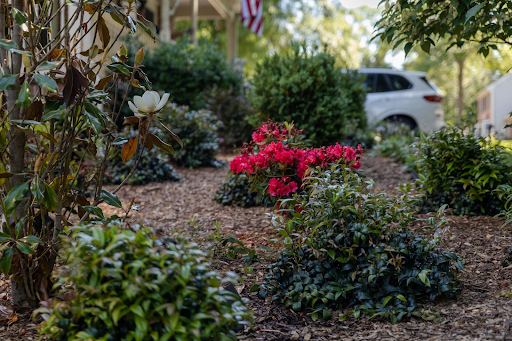Sustainable Plantings to Consider for Your Property in the Columbia and Ellicott City, MD Areas
Choosing the right plants can help create a sustainable and thriving ecosystem on your property, providing food and shelter for local wildlife and improving the overall health of the environment. If you're looking to incorporate sustainable plantings into your landscape in Columbia and Ellicott City, MD, it's essential to choose plantings that are well-suited to the local climate.
Related: Bring Pops of Color to Your Composite Deck With Plantings in the Columbia, MD Area
Swamp Milkweed
Swamp milkweed is a hardy, native perennial plant that thrives in wet soil conditions. It's great for areas with standing water or near a water source, including water features in your landscape design. Swamp milkweed provides essential nectar and food for local pollinators, including monarch butterflies, which rely on milkweed as a host plant for their larvae.
Eastern Redbud
Eastern redbud is a small deciduous tree that produces showy pink or purple flowers in early spring, making it an excellent choice for sustainable plantings that require early-season color. The Eastern redbud is also a host plant for several species of moths and provides food and shelter for birds and small mammals.
Virginia Bluebells
Virginia bluebells are a native woodland wildflower that bring forth beautiful blue bell-shaped flowers in early spring. They prefer moist soil conditions and partial shade, making them an excellent choice for sustainable plantings in wooded areas or near water sources. Virginia bluebells provide nectar for pollinators and are an important food source for bees in the early spring.
Black-eyed Susans
Black-eyed Susans are a native perennial that gives bright yellow flowers with dark centers in mid to late summer, providing essential nectar for pollinators during the peak of the growing season. Black-eyed Susans are also a host plant for several species of butterflies, including the Silvery Checkerspot and the Gorgone Checkerspot.
American Beautyberry
American beautyberry is a native deciduous shrub that offers showy clusters of bright purple berries in the fall. The berries are an important food source for birds and small mammals and can provide a striking visual accent to sustainable plantings in the autumn months. American beautyberry is also a host plant for the Banded Hairstreak butterfly.
Spicebush
Spicebush is a native deciduous shrub that produces showy yellow flowers in early spring, which give way to red berries in the fall. Spicebush is an important food source for native pollinators, including several species of bees, and is a host plant for the Spicebush Swallowtail butterfly.
Red Chokeberry
Red chokeberry is a native deciduous shrub which produces showy clusters of white flowers in the spring, which then give way to bright red berries in the fall. The berries are an important food source for birds and small mammals and can provide a colorful contrast to other year-round plantings in the autumn and early winter months.
Joe Pye Weed
Despite its name Joe Pye weed can be a desirable a native perennial plant that blooms with pink or purple flowers in mid to late summer, providing essential nectar for pollinators during the peak of the growing season. It is an excellent choice for sustainable plantings in areas with moist soil conditions, such as near a water source or in a rain garden. It's also a host plant for several species of butterflies, including the Black Swallowtail and the Spicebush Swallowtail. Overall, Joe Pye weed is a low-maintenance and visually striking addition to any sustainable landscape.
Related: Landscape Design Ideas for Centering Your Backyard Around a Paver Patio in the Hanover, MD, Area
About the Author
With nearly two decades of experience, Valley Deck & Patio has grown into a full-service landscape design and construction company known for our custom work. Our talented team takes on the challenge of complex projects, and we are always ready to roll up our sleeves and exceed customer expectations.

